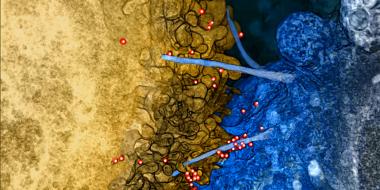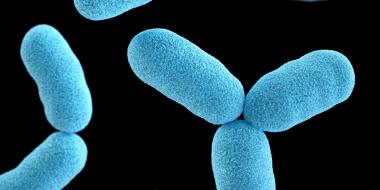Microbiome
In our body there are millions of microbes known collectively as the microbiome or microbiota, which account for approximately 1.5 kg of our body weight.

Many of the microbes that inhabit our body are beneficial and contribute to functions such as digestion of nutrients and regulation of the immune system
The human body has millions of microbes, referred to generally as the microbiome or microbiota, accounting for approximately 1.5 kg of body weight. Most are beneficial and contribute to functions as important as digesting nutrients, synthesizing vitamins and essential amino acids, and regulating the immune system and metabolism.
The microbiome in health and disease
The fact that the bacterial, fungal, and viral makeup of the microbiome can be altered by disease and can, in turn, influence disease course, has led the scientific community to want to understand the relationship between the microbiome, health, and disease. Another goal is to understand the potential of microbes to prevent and treat pathologies, for which it will be necessary to understand what might be an ‘ideal’ microbiome composition and to design ‘à la carte’ strategies to modify the microbiome. IrsiCaixa researches microbe links to infections (especially HIV), cancer, Alzheimer disease, and other pathologies, and its scientific programme includes how to use the microbiome to improve vaccine response, prevent infection-related ageing, and alleviate cognitive deterioration in diseases such as Alzheimer disease and Down syndrome.
Strengthening the immune response
The bacteria that make up the microbiome have different functions, many related to regulation of the immune system responsible for fighting disease and responding to vaccines. Most bacteria are located in the gut, along with 90% of CD4 T-cells, the immune system cells that attack HIV. Thanks to this microbe-lymphocyte ‘coexistence, the gut microbiome interacts with the immune system and so can contribute to its development and regulation. IrsiCaixa investigates how the microbiome can alter immune system recovery in people infected by HIV and other agents, and how the microbiome can strengthen the immune response of a therapeutic or preventive vaccine against HIV and possibly form part of a functional cure/eradication strategy for this disease.
Ageing with improved quality of life
Research into the microbiome and HIV can be extended to ageing. When HIV enters the body, in a matter of weeks it damages the gut immune system, in charge of controlling the balance between good and bad bacteria. This imbalance can cause inflammation, hardening of the arteries, osteoporosis, and other conditions associated with ageing. HIV/AIDS is thus a model for accelerated ageing, so the corresponding research is also aligned with research into strategies for ageing with an improved quality of life.

